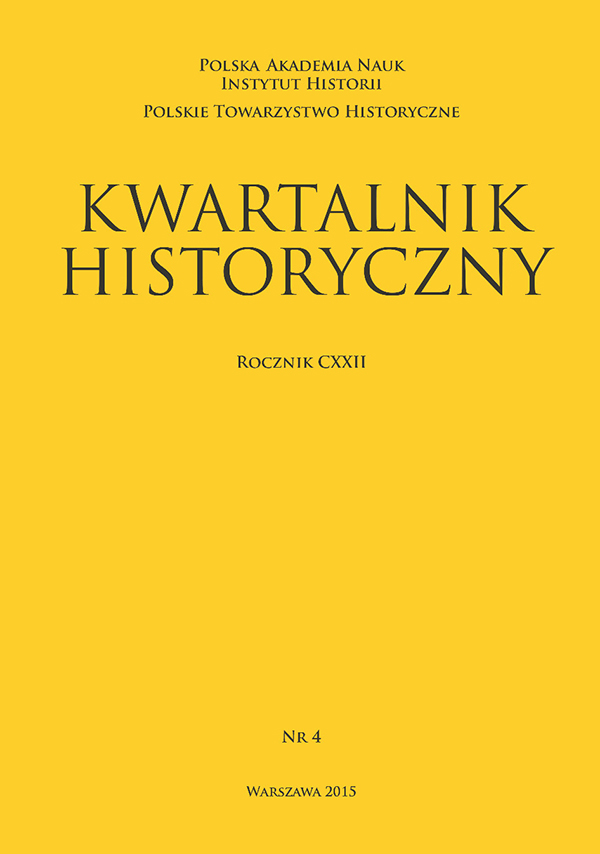Liber de passione martiris i Vita maior s. Stanislai. Na marginesie książki Wojciecha Drelicharza o idei zjednoczenia królestwa
DOI:
https://doi.org/10.12775/KH.2015.122.4.19Sažetak
Liber de passione martiris and Vita maior s. Stanislai. On the Margin of a Book by Wojciech Drelicharz about the Idea of the Unification of the Polish Kingdom
Idea zjednoczenia królestwa w średniowiecznym dziejopisarstwie polskim (Kraków 2012) by Wojciech Drelicharz is an extremely valuable publication due to an extensive presentation of the titular problem. The author of this article embarked upon a polemic with the book’s detailed findings as regards two problems: Liber de passione martiris, evoked by Gallus Anonymous in his account of a visit paid by Emperor Otto III in Gniezno, and an eschatological interpretation of Vita maior s. Stanislai by Wincenty, a Dominican. Drelicharz recognised Gallus’ story of the Gniezno convention to be a summary of Liber de passione, as demonstrated by the number of concrete data contained in this fragment of the chronicle, striking against the background of the rest of the narration about the age of the first Piasts. Consequently, the author of the article attempted to show that apart from an account of the Gniezno convention Gallus Anonymous also included numerous pieces of information pertaining to Bolesław the Brave, today regarded as historical and impossible to connect with the Passion of St. Wojciech. Furthermore, Drelicharz noticed a certain ambiguity and ineptness in the passage about the Gniezno convention, which he explained by the fact that the chronicler was forced to adapt the message of Liber de passione martiris. P. Żmudzki is of the opinion that the narration by Gallus Anonymous relating to the Gniezno convention is cohesive and serves well the leitmotif of an entire chapter opening Gallus’ story about Bolesław the Brave. The chronicler claimed that Bolesław I was a strong and powerful monarch already from his birth, and that upon arriving in Gniezno the Emperor could only confirm this status and officially title Bolesław king. Gallus created his personal vision of the inauguration of the realm of Boleslaw the Brave, far from the version propounded by contemporary historians, a situation by no means isolated in mediaeval historiography. If upon this occasion he referred to Liber de passione martiris, then the latter’s contents cannot be in any manner abstracted from the chronicle by the Anonymous. Writing about Vita maior s. Stanislai Drelicharz negated the eschatological interpretation of a prediction about the reintegration of the kingdom, maintaining that Wincenty, a Dominican, created a cohesive “political” conception of the unification of Poland. The author of this article demonstrates that there is no contradiction between the eschatological and the “political” interpretation. While writing the prophetic fragments of Vita maior s. Stanislai Wincenty used the New Testament, in which the Second Coming and Judgment Day are the sole visions of the future. The Dominican envisaged the renascent kingdom of the Poles to be simultaneously the Kingdom of God. Drelicharz did not take into consideration the eschatological context of “royal priesthood”, a notion of key importance for understanding the conception proposed by Wincenty.
Downloads
Objavljeno
How to Cite
Broj časopisa
Rubrika
Stats
Number of views and downloads: 567
Number of citations: 0



